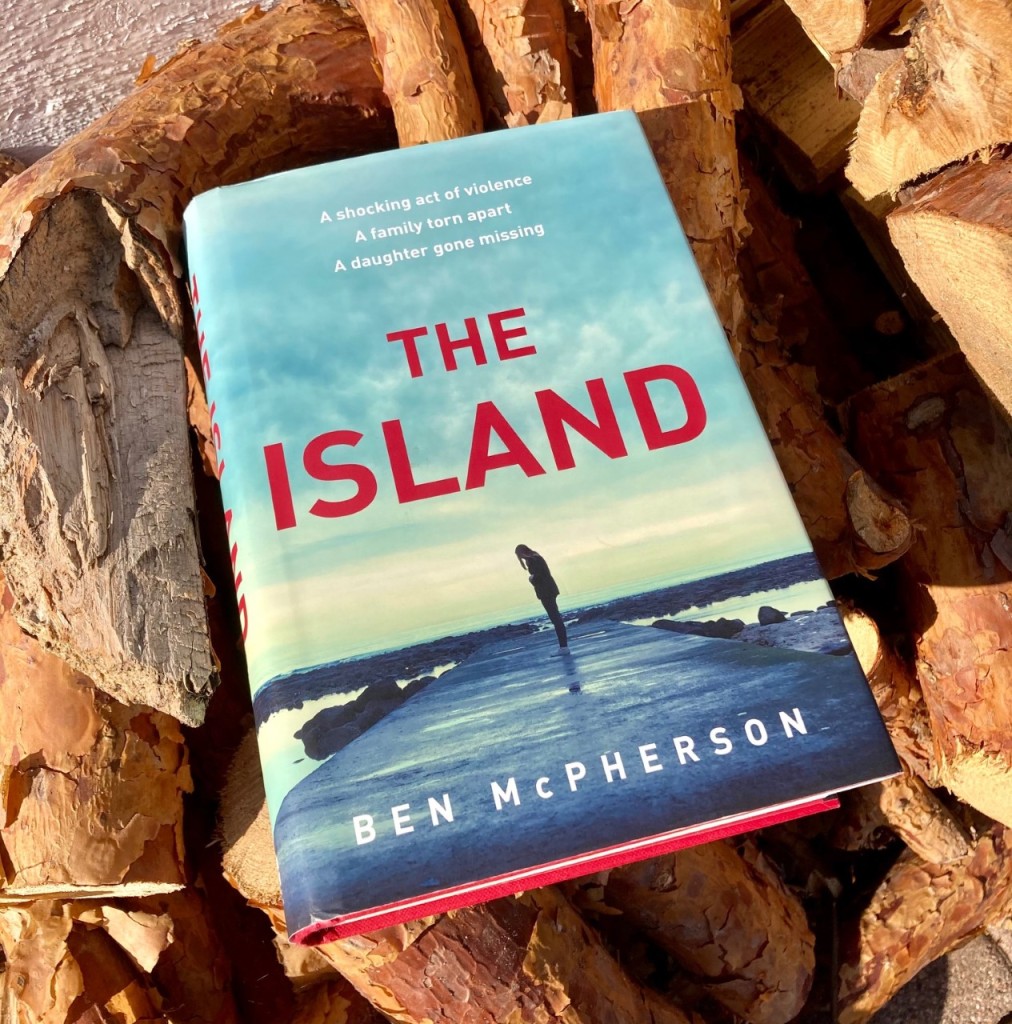Today marks the tenth anniversary of the terrorist attacks by a white supremacist in Oslo’s government district and on the island of Utøya. In the last week the Norwegian media have been full of memories, evaluations, recollections. Sadness and anger. Most of all: the desire not to have experience anything like that again. 77 people lost their lives, 69 of them were left-ish teenagers at the summer camp.
Today Oslo sparkled with sunshine and noises of everyday life; however, the national events to remember the dead and not forgotten young people have been solemn and thoughtful.

It is not my place to provide own analysis of this tragedy. Instead, I would like to republish my review (originally on Crime Review pages) of the novel which shook me, and made a huge impression on my understanding of consequences of the killing spree and reactions by ordinary people.
Scottish Cal and Norwegian Elsa left their home in Washington DC to stay for six months in Norway, with their two teenage daughters and a baby son. The change of scene brought also a devastating change to their lives: fifteen-year-old Licia vanished from a summer camp on a tranquil island where two men shot tens of youngsters. Desperate and destroyed family falls apart, doubting one another, mistrusting the police, losing faith and hope to ever survive this mental ordeal.

The Island hits you hard from the very first paragraphs. An idyllic image of a fifteen-year-old girl ‘sleeping alone on a grassy bank at the side of a glistening fjord.’ Distant voices of more girls attending International Future Female holiday camp; visions of empowering the youngsters, respect for the others and the environment. True Norwegian dream… But the tranquillity of such a serene moment becomes ruined as soon she feels shockwaves of a bomb explosion coming from a capital city nearby. Two police officers arrive at the island and round up all teenagers in one place, and start shooting. The girl realises that the men cannot be the real police, tries to warn others, and help a younger boy, tries in vain to escape from the site of the massacre. Then she vanishes.
The nation is in shock. Devastated parents of ninety-one murdered victims cannot comprehend what had happened in their safe country, ‘practical, elegant and egalitarian’ encapsulating the best Scandinavian values, as someone has pointed out half-ironically, half-desperately. A year later a trial is held of two brothers, representing Tactical Brigades of the Knights Templar.
Licia’s parents Cal and Elsa Curtis cannot move on after the massacre, delve into their missing daughter’s secrets and discover strange activities of their younger girl Vee. Their personal microcosmos shattered, doubts and suspicions of one another appear. Elsa seems to be more mysterious and aloof. Cal reaches out to charismatic Father Bror of the Patriotic Order of the Temple Knights, who had known Elsa in the past and who offers advice. Because now the couple distrust the police even if Cal and the Chief of Police form an uneasy friendship.
Ben McPherson weaves the chilling unsettling story of grief and despair into the modern take on the Norwegian reality. His detailed razor-sharp perception of differences between cultural and social aspects of different societies gives drama and depth to the vividly authentic main characters who struggle to process their trauma. Elsa, an uncompromising photographer and quintessential Nordic goddess, lives by the principle of absolute honesty in her approach to life. Cal, a Scottish satirist, remains a foreigner, an observer, slightly adrift in Norway where the family moved for a while after living in the USA for many years. As a spectator to the national tragedy he feels that his own family falls apart as a result of not knowing if Licia is dead or alive, whether she somehow managed to survived the massacre, and at the same time hearing of his little girl hailed as a hero. That last element makes him equally proud and concerned: a video footage shot by a TV crew in a helicopter shows a girl wearing a distinct dress and saving lives of other youths. But an old photo of Licia holding a gun during a shooting practice in the USA emerges and appeals to those blinded by white power.
The aftermath of the terrorist attack in July 2011 in Oslo and on Utøya echoes throughout this gripping intense novel, and occasionally makes for disconcerting reading as The Island is inspired by true events. However, the author meticulously analyses the aftershock experienced by all members of the society and the emotional consequences impacting Curtis’ family perspectives and that process of change, of attempting to rationalise their responses, of processing all contradictory feelings, is told with sensitivity and understanding. This psychological thriller is deftly penned by an author who sees even the smallest differences in the changing society, and through this prism he delivers an outstanding study in personal heartbreak.


Ben McPherson’s The Island was published by Harper Collins (hardback 2020, paperback 2021)

This sounds a great read Ewa. Great review as always xx
LikeLike